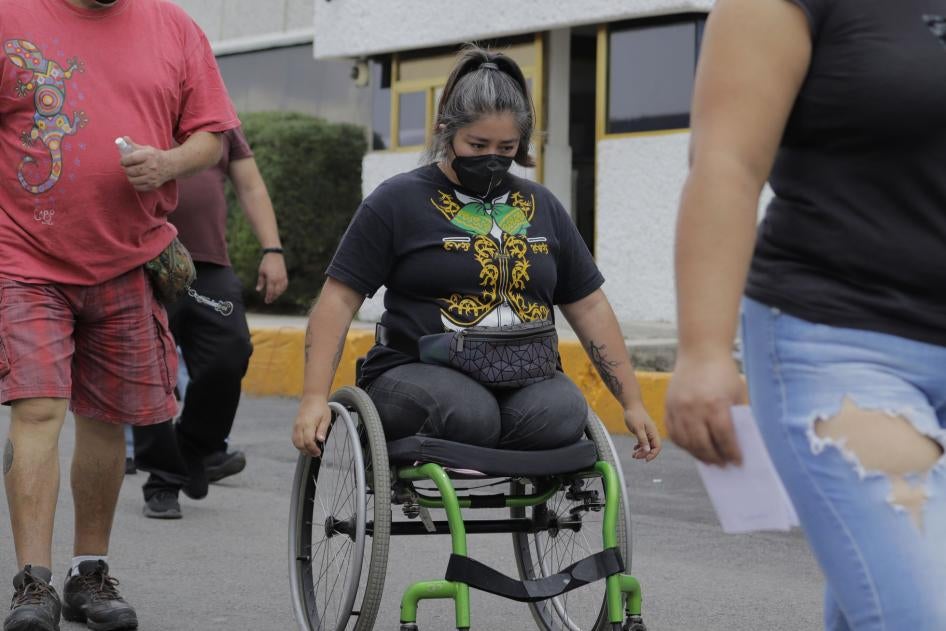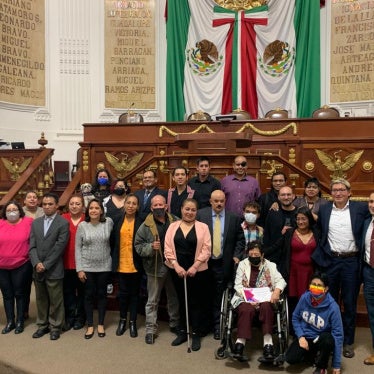Mexican women with disabilities experience a shockingly high rate of domestic violence, a new government survey has found.
It was the first time that the National Survey on the Dynamics of Relationships in Households by the National Institute of Statistics and Geography (INEGI), included girls and women with disabilities as a separate category since it began recording and analyzing rates of violence against girls and women age 15 and older in 2003.
According to the 2021 survey, released in August 2022, 11.9 percent of girls and women 15 and older in Mexico, more than 6 million, have a disability. As the survey confirms, the rates of violence experienced by all women and girls during their lives in Mexico is high—at 70.1 percent. But for girls and women with a disability, the number is even higher: 72.6 percent of them have experienced violence at least once in their lives.
The survey covers five categories of violence: psychological, physical, sexual, economic and patrimonial violence, with patrimonial referring to affecting the survival of the victim. And for each form of violence except sexual violence, the percentage of respondents who had experienced violence in the past year was higher for girls and women with disabilities.
Over the course of the respondents’ lifetimes, the rates of sexual violence are very similar for those with disabilities and those without. However, the rates are considerably higher for those with disabilities in the other categories.
The inclusion of this type of information is essential to adequately building and developing policies to prevent violence against girls and women with disabilities, so the new edition of this survey is very helpful, but there is still room for improvement.
For example, the survey did not adequately capture information about girls and women with psychosocial disabilities—or mental health conditions. Mexico’s statistics agency and other government authorities collecting data on violence against people with disabilities should make a concerted effort to gather information about girls and women with psychosocial disabilities to fully understand the scope of the problem.
Another area that is missing is women who are institutionalized, which in itself is an abuse against people with disabilities. There is no available national data on people with disabilities living in institutions, where violent events are most likely underreported. Due to the practical difficulties of collecting data from people in institutions, INEGI may struggle to obtain this crucial information for the next national survey. But a different instrument, like a general census of people living in institutions that other counties like Brazil have used, could provide insight into violence against people with disabilities living in institutions.
We had urged INEGI to collect disaggregated information on violence suffered by women with disabilities. Even with the gaps in information, we now have a far more accurate picture of the situation and the policies that need to be put in place.
Government agencies at all levels should examine this new data and review their policies and practices to ensure the safety of girls and women with disabilities.
A bill to ensure that women with disabilities have accessible services to protect them against violence is already under consideration. Last year, a coalition of organizations of women with disabilities and other nongovernmental organizations, including Human Rights Watch and Yo También, presented a proposal to amend the General Law for Women's Access to a Life Free from Violence by mandating women’s shelters to make their services accessible to women with disabilities and, among other provisions, to provide needed support services to enable them to escape violence.
Although the Senate approved this proposal in November 2021, it has stalled in the House of Representatives.
Now, equipped with the hard evidence of high rates of violence against girls and women with disabilities from INEGI’s survey, the legislature should seize this opportunity to move forward with the legislative process and provide necessary funding. These reforms will provide long overdue protections to women and girls with disabilities who have long suffered without help or recourse.










